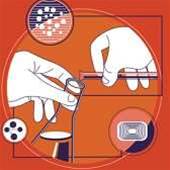
Researchers at the universities of Warwick and Leicester coated the sensors used by 'electronic noses' with a mix of polymers that mimics the action of mucus in a human nose. This was found to greatly improve the performance of the electronic devices.
A natural nose, the scientists explained, uses over 100 million specialised receptors or sensors which act together in complex ways to identify and differentiate the molecules they encounter.
Electronic noses, used in a number of commercial settings including quality control in the food industry, use the same method but often have fewer than 50 sensors.
This means that electronic noses can discern a much smaller range of smells than the human nose.
The "artificial snot" developed by the UK boffins dissolves scents and separates out different odour molecules so that they arrive at the receptors at different speeds and times.
The researchers placed a 10 micron layer of a polymer normally used to separate gases on the sensors within their electronic nose.
They then tested it on a range of compounds and found that the artificial mucus substantially improved the performance of the electronic nose, allowing it to differentiate smells such as milk and banana which had previously been challenging for the device.
University of Warwick researcher Professor Julian Gardner said: "Our artificial mucus offers improved odour discrimination for electronic noses, and much shorter analysis times than conventional techniques."
The device, including the sensors and the artificial mucus, is contained in a relatively thin piece of plastic just a few centimetres square and costs less than £5 (a$12.05) to produce.
The research, funded by the Engineering and Physical Sciences Research Council, has just been published in Proceedings of the Royal Society.

_(28).jpg&h=140&w=231&c=1&s=0)
.png&h=140&w=231&c=1&s=0)







 iTnews Benchmark Awards 2026
iTnews Benchmark Awards 2026
 iTnews Executive Retreat - Security Leaders Edition
iTnews Executive Retreat - Security Leaders Edition
 iTnews Cloud Covered Breakfast Summit
iTnews Cloud Covered Breakfast Summit
 The 2026 iAwards
The 2026 iAwards











_(1).jpg&h=140&w=231&c=1&s=0)



